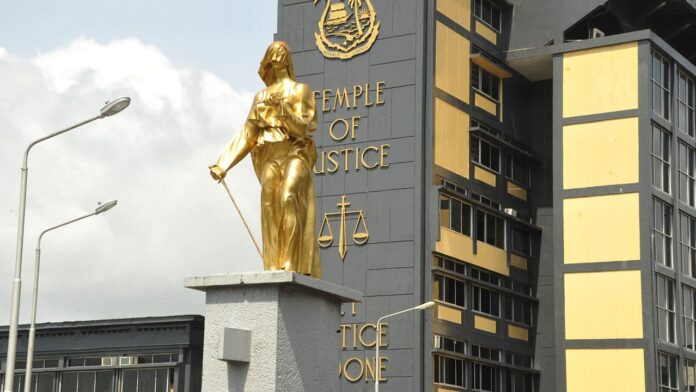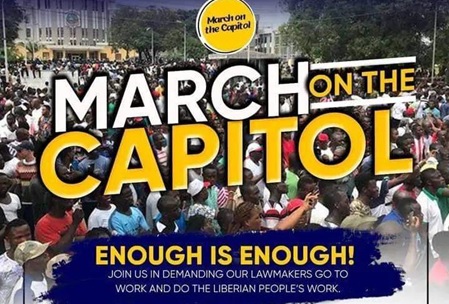MONROVIA – In a substantial escalation of the ongoing legislative standoff, the Supreme Court of Liberia, under the guidance of Associate Justice Yamie Quiqui Gbeisay, convened a court conference on Monday, November 4, 2024, to address procedural concerns surrounding the Majority bloc’s effort to unseat Speaker Fonati Koffa. This showdown between the Speaker’s bloc and the Majority faction emphasizes the widening rift within Liberia’s House of Representatives and raises essential questions about the constitutional safeguards meant to protect the rule of law in such proceedings.
Represented by former Associate Justice Kabineh Ja’neh and Cllr. Cyrenius Cephas, Speaker Koffa’s legal team presented arguments highlighting the alleged procedural flaws in the Majority bloc’s approach. They contended that the Majority’s push to oust the Speaker lacked due process, arguing that Koffa was not formally informed of any grievances before the removal campaign gained momentum. This omission, they claimed, violated both the Speaker’s rights and the integrity of legislative procedures.
In a pointed inquiry, Justice Gbeisay directly questioned Cllr. Varney Sherman, the legal representative for the Majority bloc, about whether any formal complaint had been lodged with the Speaker prior to the campaign to remove him. Sherman’s response indicated a belief that procedural rights had not been compromised; he asserted that the bloc had informed Koffa sufficiently through their collection of signatures. However, Speaker Koffa’s counsel was quick to counter, insisting that no complaint had ever reached the Speaker’s desk—only a petition of signatures gathered to oust him.
The exchange highlights not just a dispute over facts but also a fundamental difference in interpreting procedural rights and legislative process. Justice Gbeisay’s insistence on adhering to due process principles reflects a recognition that such constitutional protocols serve as bulwarks against arbitrary decision-making within the nation’s highest law-making body. He called on the Majority bloc to resolve their grievances in the main legislative chamber and to follow legal protocols that allow the Speaker to respond to any accusations formally.
The ramifications of this internal power struggle extend beyond the House chamber. For Liberia’s democratic institutions, this case emphasizes the importance of due process in maintaining checks and balances, especially when legislative factions diverge on governance. Justice Gbeisay’s emphasis on adherence to procedural norms acts as a reminder of the judiciary’s role in ensuring that all branches of government function within the bounds of the law, particularly when the stakes involve the potential removal of a high-ranking legislative official.
Following Justice Gbeisay’s instructions, Cllr. Sherman affirmed that the Majority bloc would comply with the directive to pursue the matter through appropriate legal channels. Meanwhile, Majority leader Representative Samuel Kogar announced a session scheduled for Tuesday, November 5, 2024, though he did not specify whether this session would take place in the main or joint chambers. This uncertainty reflects the lingering ambiguity surrounding the legislative process in what has become one of the most divisive conflicts within Liberia’s government in recent years.
The Supreme Court’s intervention has momentarily stalled the removal effort, but questions remain about whether this legal ruling will prevent future challenges to Koffa’s leadership. Justice Gbeisay’s directive has reframed the debate, placing a spotlight on procedural fidelity in the legislative branch, an essential reminder in a political landscape that has grown increasingly polarized. For the public, the outcome of this dispute may set a precedent, revealing whether Liberia’s lawmakers can resolve internal conflicts without bypassing democratic safeguards or undermining public confidence in governance.
As tensions remain high, the coming days will likely prove pivotal in determining both Speaker Koffa’s future and the extent to which Liberia’s judiciary will continue to play an active role in upholding the rule of law within the legislature. Regardless of the outcome, this case serves as a powerful reminder of the judiciary’s potential as an impartial arbitrator, capable of steering Liberia’s democratic institutions back toward constitutional integrity when political rivalries threaten to disrupt governance.







